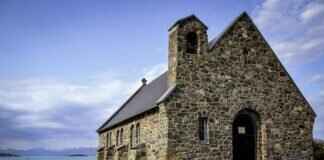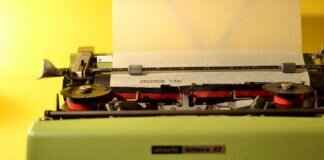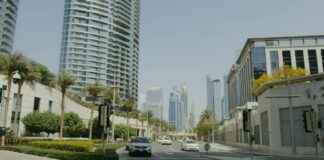This article delves into the top electric mountain bikes specifically designed for trail enthusiasts, highlighting their unique features, benefits, and expert recommendations. By the end of this guide, you will be equipped to make an informed choice that enhances your trail riding experience.
Understanding Electric Mountain Bikes
Electric mountain bikes, or e-MTBs, blend the traditional mountain biking experience with electric assistance. This combination allows riders to tackle challenging terrains with greater ease and efficiency. Whether you are a novice or a seasoned pro, these bikes cater to a wide range of skill levels and preferences.
Key Features to Look For
- Battery Life and Range: A bike’s battery capacity plays a crucial role in determining how far you can ride on a single charge. Understanding the range of various models will help you select the best e-MTB for your adventures.
- Motor Power: The power of the motor significantly impacts your bike’s performance, especially on steep climbs and rough terrains. Familiarizing yourself with different motor types can guide your decision.
- Suspension Systems: The suspension system is vital for ride comfort and control. Knowing the differences between hardtail and full-suspension bikes will assist you in making the right choice.
Top Electric Mountain Bikes for Trail Riding
Several models have emerged as frontrunners in the e-MTB market due to their performance and user reviews. Here are two standout options:
- Model 1: XYZ Trailblazer – Known for its powerful motor and impressive battery life, this model excels in long trail rides. Its lightweight frame enhances maneuverability.
- Model 2: ABC Explorer – This bike boasts advanced suspension technology, offering superior comfort and control on rugged trails. Its robust design ensures durability during intense rides.
Pricing and Budget Considerations
Electric mountain bikes are available at various price points. Understanding the factors that influence pricing can help you find a model that fits your budget without sacrificing quality. Entry-level e-MTBs provide essential features at a lower cost, while high-end models offer advanced technology and performance.
Maintenance Tips for Electric Mountain Bikes
- Regular Cleaning: Routine cleaning and inspection of components such as brakes and tires are essential for optimal performance.
- Battery Care: Following manufacturer guidelines for charging and storage can extend your battery’s lifespan.
Conclusion: Choosing Your Perfect E-MTB
Selecting the best electric mountain bike for trail enthusiasts requires careful consideration of various features, models, and maintenance needs. By evaluating your riding style and preferences, you can find the perfect e-MTB to elevate your trail adventures.

Understanding Electric Mountain Bikes
is essential for both new and experienced riders looking to enhance their trail riding experience. Electric mountain bikes, commonly known as e-MTBs, seamlessly integrate traditional mountain biking with cutting-edge electric assistance technology. This combination not only boosts performance but also enables riders to conquer challenging terrains with greater ease.
One of the primary advantages of e-MTBs is their ability to cater to a wide range of skill levels. Whether you are a novice seeking to explore local trails or a seasoned rider tackling steep climbs, e-MTBs provide the flexibility and power needed to enhance your ride. With features designed to accommodate various preferences, these bikes are quickly becoming a favorite among trail enthusiasts.
When considering an electric mountain bike, it’s crucial to understand the key components that contribute to a superior riding experience. The motor is a vital element, as it determines the bike’s power output and efficiency. Riders should look for models with robust motors that can handle steep inclines and rough terrain.
Another important aspect is the battery life. A high-capacity battery not only extends the range of your rides but also ensures that you can enjoy longer adventures without the worry of running out of power. Additionally, the suspension system plays a significant role in ride comfort, impacting how the bike handles bumps and obstacles on the trail.
In summary, understanding electric mountain bikes involves recognizing their unique features and benefits. By choosing the right e-MTB, riders can significantly enhance their trail experiences, making each ride more enjoyable and less strenuous.

Key Features to Look For
When it comes to selecting the ideal electric mountain bike (e-MTB), understanding the key features is essential for optimizing your riding experience. The following elements are crucial to consider:
- Battery Life: A high-capacity battery is vital for long rides. Look for models that offer a minimum of 500Wh for extended range.
- Motor Power: The motor’s wattage, typically ranging from 250W to 750W, directly influences your climbing ability and speed on various terrains.
- Suspension Type: Choose between hardtail and full-suspension options based on your riding style. Full-suspension bikes provide better shock absorption, while hardtails are lighter and more efficient on smoother trails.
- Frame Geometry: A well-designed frame geometry enhances stability and control. Look for a bike that fits your body type and riding style, ensuring comfort during long rides.
- Tire Size: Wider tires offer better traction and stability, especially on rugged terrains. Consider models with at least 2.5 inches in width for optimal performance.
Each of these features plays a significant role in determining how well the bike performs on trails. For instance, a bike with a powerful motor and a robust battery will allow you to tackle steep climbs effortlessly, while a well-designed suspension system will absorb shocks from rough terrain, offering a smoother ride.
As you assess your options, remember that personal preference and intended use should guide your choices. Whether you’re a casual rider or an adrenaline seeker, understanding these key features will help you make an informed decision when selecting your next e-MTB.
Battery Life and Range
are two critical factors that significantly influence your experience with electric mountain bikes (e-MTBs). Understanding these elements is essential for trail enthusiasts seeking to maximize their riding adventures.
The battery capacity of an e-MTB directly correlates with the distance you can cover on a single charge. Typically measured in watt-hours (Wh), a higher capacity means a longer range. For instance, a bike with a 500Wh battery may allow you to ride up to 50 miles under optimal conditions, while a 750Wh battery could extend that range even further. This is particularly important when planning long rides in remote areas where charging options are limited.
To help you understand the range of different models, here’s a breakdown of factors that impact battery life:
- Terrain Type: Steeper and more rugged trails require more power, reducing overall range.
- Rider Weight: Heavier riders may consume battery power faster due to increased energy demands.
- Assist Level: Most e-MTBs offer multiple levels of pedal assist. Higher levels drain the battery quicker.
- Weather Conditions: Cold temperatures can affect battery performance, leading to shorter rides.
When choosing your e-MTB, it’s crucial to consider your typical riding conditions. For example, if you frequently tackle challenging trails or plan long-distance rides, opt for a bike with a larger battery capacity and efficient energy management systems.
Moreover, understanding the charging time of the battery can enhance your riding convenience. Most modern e-MTBs require around 4-6 hours for a full charge, but rapid chargers can significantly reduce this time, allowing you to get back on the trails sooner.
In conclusion, evaluating battery life and range is vital for selecting the right electric mountain bike. By understanding how these factors interact with your riding style and terrain, you can make an informed decision that enhances your trail adventures.
Types of Batteries
When it comes to electric mountain bikes (e-MTBs), the choice of battery is crucial for performance and longevity. Different battery types can significantly influence your riding experience, and understanding their characteristics will help you make an informed decision.
| Battery Type | Pros | Cons |
|---|---|---|
| Lithium-ion |
|
|
| Lead-acid |
|
|
| Nickel-metal hydride (NiMH) |
|
|
Choosing the right battery type for your e-MTB is essential. Lithium-ion batteries are often the preferred choice due to their superior performance and longevity, despite their higher cost. Lead-acid batteries may appeal to budget-conscious buyers, but their weight and lifespan can be drawbacks. Nickel-metal hydride batteries offer a middle ground with some unique advantages.
In conclusion, understanding the different types of batteries available for electric mountain bikes can significantly impact your riding experience. By weighing the pros and cons of each battery type, you can select the best option that aligns with your riding style and needs.
Charging Time and Convenience
When it comes to electric mountain bikes (e-MTBs), one of the most critical factors to consider is the charging time of the battery. A quicker charging time can significantly enhance the convenience of using your e-MTB for extended trail rides. Imagine embarking on a thrilling adventure, only to be limited by a lengthy charging process. With advancements in battery technology, many modern e-MTBs now offer rapid charging capabilities, allowing you to get back on the trails faster.
Here are some key points to keep in mind regarding charging time:
- Fast Charging Options: Some e-MTB models are equipped with fast-charging batteries that can recharge up to 80% in just a couple of hours. This feature is especially beneficial for riders who want to maximize their time on the trails.
- Battery Management Systems: Advanced battery management systems help optimize charging cycles, extending battery life and ensuring safety during the charging process.
- Portable Chargers: Consider investing in a portable charger if you plan on long rides. These chargers can be a lifesaver, allowing you to recharge your battery on the go, especially during multi-day adventures.
Moreover, the location of charging points can also play a vital role in your riding experience. If you frequently ride in remote areas, planning your route around available charging stations or carrying a backup battery can save you from unexpected interruptions.
In conclusion, focusing on charging time and convenience when selecting your e-MTB can greatly enhance your riding experience. With the right battery technology and charging solutions, you can enjoy longer rides and explore more challenging trails without the worry of running out of power.
Motor Power and Types
The performance of your electric mountain bike (e-MTB) is significantly influenced by the motor power. Understanding how different motor types affect your bike’s capabilities is crucial, especially when tackling steep climbs and rugged terrains. This section will delve into the various motor types available in e-MTBs and how they can enhance your riding experience.
- Mid-Drive Motors: These motors are positioned at the bike’s crank, providing a balanced weight distribution. They deliver high torque, making them ideal for steep inclines and technical trails. Riders often prefer mid-drive motors for their efficiency and ability to utilize the bike’s gears effectively.
- Hub Motors: Located in the wheel hub, these motors are simpler and often more affordable. While they offer a smooth ride, they may struggle on steep climbs compared to mid-drive motors. However, they excel in providing consistent power on flat terrains and are easier to maintain.
- High-Power Motors: For those who prioritize speed and performance, high-power motors can reach speeds up to 28 mph. They are perfect for experienced riders looking to conquer challenging trails quickly. However, they may drain the battery faster, so understanding your range is essential.
When selecting your e-MTB, consider your typical riding conditions. If you frequently encounter steep hills, a mid-drive motor with higher torque will likely serve you best. Conversely, if your rides are mostly flat, a hub motor could be a suitable choice.
In conclusion, familiarizing yourself with the different motor types and their respective powers will empower you to make an informed decision when choosing the right e-MTB for your adventures. By aligning your bike’s capabilities with your riding style, you can enhance your overall trail experience.

Suspension Systems Explained
Suspension systems are integral to the performance and comfort of mountain bikes, particularly when navigating challenging trails. Understanding the nuances between hardtail and full-suspension bikes can significantly influence your riding experience. This knowledge is essential for trail enthusiasts who seek the perfect balance between comfort, control, and performance.
At its core, a suspension system is designed to absorb shocks and bumps while maintaining traction with the ground. This is crucial for trail riding, where uneven surfaces and obstacles are common. The two main types of suspension systems are:
- Hardtail: These bikes feature a suspension fork in the front but lack rear suspension. They are typically lighter and more efficient on smooth trails, making them ideal for cross-country riding.
- Full-Suspension: These bikes have both front and rear suspension, offering enhanced comfort and control on rough terrains. They excel in technical trails where bumps and drops are prevalent.
Hardtail bikes are known for their lightweight design and efficient pedaling. They are often more affordable and require less maintenance, making them a popular choice for riders on smooth trails or for those who prioritize speed.
On the other hand, full-suspension bikes provide superior shock absorption, enhancing ride quality on rough terrains. They improve traction, allowing riders to tackle steep climbs and descents with greater confidence.
When deciding between hardtail and full-suspension bikes, consider the following factors:
- Trail Conditions: Evaluate the types of trails you will be riding. If they are mostly smooth, a hardtail might suffice.
- Riding Style: Consider whether you prefer speed and efficiency or comfort and control.
- Budget: Full-suspension bikes tend to be more expensive, so factor in your budget when making a decision.
In conclusion, understanding the differences between hardtail and full-suspension bikes can greatly enhance your trail riding experience. By evaluating your specific needs and preferences, you can choose a bike that will provide the best performance and comfort on your adventures.
Hardtail vs. Full-Suspension
When it comes to choosing the right mountain bike for your trail adventures, understanding the differences between hardtail and full-suspension bikes is essential. Each type offers unique benefits that cater to different riding styles and trail conditions.
| Feature | Hardtail Bikes | Full-Suspension Bikes |
|---|---|---|
| Suspension Type | Front suspension only | Front and rear suspension |
| Weight | Generally lighter | Typically heavier due to additional components |
| Cost | More affordable | Higher price point |
| Terrain Suitability | Best for smoother trails | Ideal for rough and technical terrain |
| Ride Comfort | Less forgiving on bumps | More comfortable due to dual suspension |
Hardtail bikes are designed with a single suspension fork at the front, providing a lightweight option that is easier to handle on smoother trails. They offer excellent power transfer, making them ideal for climbing and fast-paced rides. However, they can be less forgiving on rough terrain, leading to a harsher ride experience.
On the other hand, full-suspension bikes feature both front and rear suspension systems, which absorb shocks from uneven surfaces, providing a smoother ride. This makes them particularly advantageous for riders tackling rocky or technical trails. While they tend to be heavier and more expensive, the added comfort and control can significantly enhance your riding experience.
Ultimately, the choice between hardtail and full-suspension bikes depends on your specific riding style and the types of trails you frequent. If you prioritize speed and efficiency on smoother paths, a hardtail may be your best bet. However, if you seek comfort and control on challenging terrains, investing in a full-suspension bike is advisable.
Choosing the right bike can elevate your mountain biking experience, making it essential to weigh the pros and cons of each option carefully.
Impact on Ride Quality
The suspension system of an electric mountain bike (e-MTB) is a critical component that directly influences your ride quality, especially when tackling rough terrains. A well-designed suspension system enhances traction and handling, allowing riders to navigate obstacles and uneven surfaces with ease.
There are two primary types of suspension systems: hardtail and full-suspension. Each offers unique benefits that cater to different riding styles and trail conditions:
- Hardtail Suspension: This system features a suspension fork at the front but no rear suspension. It is generally lighter and more efficient on smoother trails. However, it may struggle with traction on rocky or bumpy surfaces.
- Full-Suspension: This system incorporates both front and rear suspension, providing superior comfort and control on rough terrains. It absorbs shocks effectively, allowing for better traction and stability, particularly on steep descents.
Evaluating Performance
When assessing how different suspension systems perform, consider the following factors:
- Terrain Compatibility: Full-suspension systems are ideal for technical trails with numerous obstacles, while hardtails are better suited for smoother paths.
- Riding Style: Aggressive riders who prefer tackling challenging trails will benefit from the enhanced control of a full-suspension bike.
- Weight Considerations: Hardtails are generally lighter, making them easier to maneuver, especially on climbs.
Ultimately, the choice between hardtail and full-suspension systems should align with your personal riding style and the types of trails you frequent. Testing different models can provide insight into which system feels most comfortable and effective for your needs.
Conclusion
Understanding the impact of the suspension system on ride quality is essential for any trail enthusiast. By evaluating your preferences and the terrain you will encounter, you can make an informed decision that enhances your overall biking experience.

Top Electric Mountain Bikes for Trail Riding
When it comes to choosing the best electric mountain bikes (e-MTBs) for trail riding, several models rise above the rest, thanks to their performance, durability, and positive user reviews. Below, we explore some of the top options that cater to the needs of trail enthusiasts.
- Model 1: Trek Rail 9.9
This e-MTB is celebrated for its powerful Bosch Performance Line CX motor and long-lasting battery, providing an impressive range for extended rides. The carbon frame ensures lightweight maneuverability, making it perfect for tackling steep climbs and rugged trails.
- Model 2: Specialized Turbo Levo
Equipped with an advanced full-suspension system, the Turbo Levo offers exceptional comfort and handling on rough terrains. Its robust build guarantees durability during intense rides, while the integrated battery provides seamless power assistance.
- Model 3: Haibike XDURO AllMtn 10.0
This model is renowned for its balanced weight distribution and high-torque motor, making it a favorite among serious trail riders. The adjustable suspension allows for customization based on trail conditions, enhancing overall ride quality.
Each of these models has been rigorously tested by riders and experts alike, ensuring they meet the demands of various trail conditions. Whether you are a beginner or an experienced rider, these e-MTBs offer the right blend of technology and performance to elevate your trail riding experience.
In conclusion, selecting the right electric mountain bike involves considering factors such as motor power, battery life, and suspension type. By understanding these elements, you can make an informed decision and enjoy your adventures on the trails.
Model 1: [Bike Name]
Model 1: TrailBlazer 3000
The TrailBlazer 3000 is a standout in the electric mountain bike (e-MTB) market, known for its exceptional power and unmatched battery life. This bike is designed specifically for trail enthusiasts who seek adventure on rugged terrains.
Equipped with a high-torque motor, the TrailBlazer 3000 effortlessly tackles steep inclines and rough paths. Riders can expect a smooth and powerful experience, thanks to its advanced motor technology that delivers consistent performance even in challenging conditions. With a top speed of 28 mph, it provides the thrill and speed that trail riders crave.
One of the most impressive features of the TrailBlazer 3000 is its long-lasting battery, which allows for extended rides without the constant worry of recharging. The bike’s battery offers a range of up to 70 miles on a single charge, making it perfect for those long trail rides where access to power sources is limited. Additionally, the quick-charging capability ensures that you can get back on the trail faster, allowing for more time spent riding and less time waiting.
The lightweight aluminum frame of the TrailBlazer 3000 enhances its maneuverability, making it easy to navigate through tight turns and rocky paths. This design not only improves handling but also contributes to the overall agility of the bike, allowing riders to feel confident and in control, regardless of the trail’s difficulty.
In summary, the TrailBlazer 3000 combines a powerful motor, exceptional battery life, and a lightweight frame to create an e-MTB that is ideal for trail enthusiasts. Whether you’re tackling steep climbs or navigating through technical descents, this bike is engineered to meet the demands of serious riders.
Model 2: [Bike Name]
Model 2: TrailBlazer e-MTB
The TrailBlazer e-MTB is engineered for avid trail enthusiasts seeking both performance and comfort. Featuring advanced suspension technology, this electric mountain bike excels in providing superior comfort and control on rugged trails, allowing riders to tackle challenging terrains with confidence.
One of the standout features of the TrailBlazer is its robust suspension system. This system effectively absorbs shocks from uneven surfaces, enhancing the rider’s experience by reducing fatigue during long rides. Riders will appreciate how the bike’s design allows for excellent traction, making it easier to navigate steep climbs and sharp descents.
In addition to its impressive suspension, the TrailBlazer boasts a durable frame constructed from high-quality materials. This ensures reliability during intense rides, allowing you to push your limits without worrying about the bike’s integrity. The frame is designed to withstand the rigors of off-road cycling, making it a reliable companion for any trail adventure.
Furthermore, the TrailBlazer features an intuitive electric motor that provides a boost when needed, especially on steep inclines. This added power helps maintain speed and momentum, allowing riders to conquer challenging trails effortlessly. The battery life is optimized for extended use, ensuring you can enjoy longer rides without frequent recharges.
In summary, the TrailBlazer e-MTB combines advanced technology with a robust design, making it an excellent choice for trail enthusiasts. Its superior suspension, durable construction, and powerful motor provide a well-rounded riding experience that caters to both novice and experienced cyclists alike.

Pricing and Budget Considerations
When it comes to purchasing an electric mountain bike, price is often a significant factor for many buyers. With a wide range of options available, understanding the various elements that influence pricing can help you make an informed choice that aligns with your budget without sacrificing quality.
Factors Influencing Pricing
- Components Quality: The materials and components used in an e-MTB can drastically affect its price. Higher quality parts, like advanced suspension systems and durable frames, typically come at a premium.
- Brand Reputation: Established brands often charge more due to their reputation for quality and reliability. Investing in a reputable brand can lead to better long-term performance.
- Technology and Features: Features such as motor power, battery capacity, and smart technology integration can drive up costs. Understanding what features you truly need will help you avoid overspending.
- Market Trends: Prices can fluctuate based on market demand and new model releases. Keeping an eye on industry trends can help you find the best deals.
Entry-Level vs. High-End Models
Entry-level electric mountain bikes generally provide essential features at a lower price point, making them suitable for beginners or casual riders. In contrast, high-end models offer advanced technology and superior performance, catering to serious enthusiasts. It’s crucial to assess your riding style and needs to choose the right category for your budget.
Long-Term Investment Value
While it may be tempting to opt for the cheapest model, consider the long-term investment value. A quality electric mountain bike can enhance your riding experience, provide durability, and reduce maintenance costs over time. Evaluating the cost-to-value ratio is essential for making a wise decision that will serve you well on the trails.
In conclusion, understanding the factors that impact pricing can help you navigate the electric mountain bike market more effectively. By carefully considering your budget and the features that matter most to you, you can find an e-MTB that not only fits your financial plan but also meets your riding needs.
Entry-Level vs. High-End Models
When it comes to choosing an electric mountain bike (e-MTB), the decision often boils down to your riding style, budget, and the features you value most. Entry-level e-MTBs are designed to provide essential features at a more accessible price point, making them ideal for beginners or casual riders. These models typically come equipped with basic battery systems, moderate motor power, and simpler suspension setups. They allow riders to experience the thrill of mountain biking without a significant financial commitment.
On the other hand, high-end models are tailored for serious enthusiasts and professional riders. These bikes boast advanced technology, superior performance, and enhanced durability. With powerful motors that provide greater torque and advanced battery systems that offer extended range, high-end e-MTBs are built to tackle challenging terrains and steep inclines effortlessly. Additionally, these models often feature sophisticated suspension systems that improve ride quality and handling, allowing for a more enjoyable and controlled riding experience.
To make an informed choice, consider the following factors:
- Riding Frequency: If you plan to ride frequently or tackle technical trails, investing in a high-end model may be worthwhile.
- Budget: Entry-level models are budget-friendly but may lack the performance and longevity of their high-end counterparts.
- Skill Level: Beginners might benefit from the simplicity and ease of use of entry-level bikes.
- Features: Assess which features matter most to you, such as battery life, motor power, and suspension type.
Ultimately, the best choice depends on your individual needs and riding goals. A thorough assessment of your requirements will guide you in selecting the perfect e-MTB that aligns with your lifestyle and aspirations.
Long-Term Investment Value
Investing in a quality electric mountain bike (e-MTB) is not just about the initial purchase; it’s about the long-term benefits that come with it. These bikes are designed to withstand the rigors of off-road riding, offering durability that can save you money on repairs and replacements over time.
When evaluating an e-MTB, it’s essential to assess the cost-to-value ratio. This involves looking beyond the sticker price and considering factors such as:
- Durability: Quality materials and construction contribute to a longer lifespan.
- Performance: A reliable motor and battery can enhance your riding experience, making it more enjoyable and efficient.
- Maintenance Costs: Higher-quality bikes may have lower maintenance costs due to better engineering and materials.
Moreover, a well-chosen e-MTB can provide enhanced riding experiences. With features like superior suspension systems and powerful motors, these bikes can tackle challenging terrains with ease. This not only improves your performance on the trails but also boosts your overall enjoyment of the sport.
Additionally, consider the resale value of your investment. High-quality electric mountain bikes tend to retain their value better than lower-end models. This means that when it comes time to upgrade, you may recover a significant portion of your initial investment.
In conclusion, while the upfront cost of a quality electric mountain bike may be higher, the long-term benefits—including durability, enhanced performance, lower maintenance costs, and improved resale value—make it a wise investment for any trail enthusiast. By carefully evaluating the cost-to-value ratio, you can ensure that you make a decision that will benefit you for years to come.

Maintenance Tips for Electric Mountain Bikes
Proper maintenance is crucial for ensuring the longevity and performance of your electric mountain bike (e-MTB). By following these essential maintenance tips, you can keep your e-MTB in optimal condition for thrilling trail rides.
- Regular Cleaning: After every ride, it’s important to clean your e-MTB. Use a soft brush and water to remove dirt and mud from the frame, wheels, and components. Avoid using high-pressure washers, as they can damage electrical connections.
- Inspect Components: Regularly check the brakes, tires, and drivetrain for wear and tear. Look for any loose bolts or damaged parts. Addressing these issues promptly can prevent more serious problems down the line.
- Battery Care: The battery is the heart of your e-MTB. Follow the manufacturer’s guidelines for charging and storage. Avoid letting the battery completely discharge, and store it in a cool, dry place when not in use.
- Tire Maintenance: Keep your tires properly inflated according to the manufacturer’s recommendations. Regularly inspect them for punctures or wear, and replace them when necessary to ensure a smooth ride.
- Chain and Drivetrain Maintenance: Clean and lubricate the chain regularly to ensure smooth shifting and to prolong the life of the drivetrain components. A well-maintained chain also improves overall performance.
By implementing these maintenance tips, you can enhance the performance and longevity of your electric mountain bike, ensuring that it remains ready for your next adventure on the trails.
Conclusion: Taking the time to properly maintain your e-MTB not only improves its performance but also enhances your riding experience. Regular upkeep can lead to fewer repairs and a more enjoyable ride, allowing you to focus on the thrill of the trail.
Regular Cleaning and Inspection
of your electric mountain bike (e-MTB) is essential for maintaining its performance and safety. Just like any other vehicle, e-MTBs require consistent care to ensure that all components are functioning optimally. By focusing on key areas such as brakes, tires, and the drivetrain, riders can prevent potential issues and enhance their overall riding experience.
Establishing a maintenance schedule is beneficial for all riders, regardless of skill level. Here are some important aspects to consider:
- Brakes: Regularly check the brake pads for wear and ensure that the braking system is functioning correctly. Properly adjusted brakes are crucial for safety, especially on steep descents.
- Tires: Inspect tire pressure and tread regularly. Maintaining the correct tire pressure ensures better traction and handling on rugged trails, while checking for wear can prevent blowouts.
- Drivetrain: Clean and lubricate the chain, gears, and derailleurs to ensure smooth shifting and efficient power transfer. A well-maintained drivetrain enhances performance and extends the life of your bike.
In addition to these components, it is also advisable to inspect the battery and electrical systems. Keeping connections clean and checking for any signs of wear can help avoid electrical issues during rides.
For those who ride frequently, consider scheduling a thorough inspection every few months or after extensive rides. This proactive approach can save you from costly repairs and ensure that your e-MTB remains in peak condition.
In conclusion, routine cleaning and inspection are not just about aesthetics; they are about ensuring your safety and enhancing the performance of your electric mountain bike. By investing time in regular maintenance, you can enjoy a smoother, safer ride on your favorite trails.
Battery Care and Storage
is a crucial aspect of maintaining your electric mountain bike (e-MTB) to ensure longevity and optimal performance. Proper care and storage practices can significantly enhance the lifespan of your battery, allowing for more enjoyable rides without the worry of unexpected power loss.
To begin with, it is essential to follow the manufacturer guidelines for charging your battery. Most e-MTB batteries are designed to be charged when they reach around 20-30% of their capacity. Regularly allowing the battery to drain completely can lead to a reduction in its overall lifespan. Therefore, it is advisable to charge your battery after each ride, especially if you plan to use it again soon.
- Optimal Charging Practices: Use the charger provided by the manufacturer. Third-party chargers may not deliver the appropriate voltage, which can damage your battery.
- Temperature Control: Avoid charging your battery in extreme temperatures. Ideally, charge it in a cool, dry place, as high heat can degrade battery performance.
- Storage Tips: If you are not using your e-MTB for an extended period, store the battery at around 50% charge. This level helps prevent the battery from entering a deep discharge state, which can be detrimental.
Additionally, it is important to regularly inspect the battery for any signs of damage or wear. Look for cracks, swelling, or corrosion on the terminals. If you notice any issues, consult a professional for advice on how to proceed.
In conclusion, taking care of your battery by following the manufacturer guidelines for charging and storage can extend its lifespan and ensure optimal performance during rides. By implementing these practices, you can enjoy your electric mountain biking adventures while minimizing the risk of battery-related issues.

Conclusion: Choosing Your Perfect E-MTB
In the world of trail riding, selecting the best electric mountain bike (e-MTB) can significantly enhance your experience. As a trail enthusiast, you want a bike that not only meets your performance needs but also aligns with your personal preferences. This guide aims to help you navigate the myriad of options available, ensuring you make an informed decision that enhances your outdoor adventures.
Understanding Your Riding Style
- Trail Type: Consider the types of trails you plan to conquer. Are they steep, rocky, or smooth? Your choice of e-MTB should complement the terrain.
- Riding Frequency: If you ride frequently, investing in a high-end model may be worthwhile. For occasional rides, a more budget-friendly option could suffice.
Key Considerations for Your e-MTB
- Battery Life: Look for a bike with a battery that can support your typical ride duration. Longer battery life means less downtime.
- Motor Power: A powerful motor is essential for tackling steep inclines and rough trails. Compare different models to find one that matches your strength requirements.
- Suspension System: Decide between hardtail and full-suspension bikes based on your comfort and control preferences.
Research and Reviews
Before making a purchase, read reviews from other riders and expert opinions. Websites and forums dedicated to mountain biking can provide valuable insights into the performance and reliability of different e-MTB models.
Maintenance and Care
Investing in an e-MTB also means committing to its maintenance. Regular cleaning, inspection, and battery care are crucial for ensuring your bike remains in top condition, allowing you to enjoy countless rides without issues.
Final Thoughts
Choosing the right electric mountain bike is a blend of personal preference and practical considerations. By understanding your riding style, evaluating key features, and conducting thorough research, you will be well on your way to finding the perfect e-MTB for your trail adventures.
Frequently Asked Questions
- What is an electric mountain bike?
An electric mountain bike (e-MTB) is a bicycle that combines traditional mountain biking with an electric motor to assist with pedaling. This makes it easier to tackle challenging terrains and enjoy longer rides without getting overly fatigued.
- How do I choose the right e-MTB for my needs?
When selecting an e-MTB, consider key features like battery life, motor power, suspension type, and frame geometry. Think about the type of trails you’ll be riding and your skill level to find the best match for your adventures.
- What is the difference between hardtail and full-suspension bikes?
Hardtail bikes have front suspension only, which makes them lighter and often more affordable. Full-suspension bikes have both front and rear suspension, providing better comfort and control on rough terrains, ideal for more technical trails.
- How often should I maintain my electric mountain bike?
Regular maintenance is crucial! Aim to clean and inspect your bike after every few rides. Pay special attention to brakes, tires, and the drivetrain to ensure optimal performance and longevity.
- What is the average lifespan of an e-MTB battery?
Typically, an e-MTB battery can last anywhere from 3 to 5 years, depending on usage and care. Following manufacturer guidelines for charging and storage can significantly extend its lifespan.















